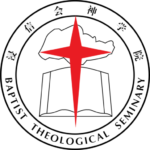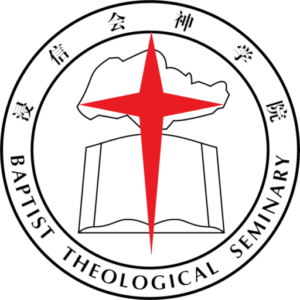From the President's Office
Happy New Year – the art of living and dying well
January 2022 Issue
Tim Keller, a renowned pastor and theologian in New York, wrote: “A significant number of believers in God find their faith shaken or destroyed when they learn that they will die … One woman with cancer told me years ago, “I’m not a believer anymore …I can’t believe in a personal God who would do something like this to me.” Cancer killed her God.”
You may wonder why I started on such a morbid note at the beginning of the New Year. On Dec 27, a good friend had recurrence of eye cancer and the whole eye had to be removed. On Dec 30, I received news from my cousin that her husband just got diagnosed with 2 types of cancer. Then this morning, Jan 3rd, another good friend got a massive stroke and is paralysed. And as I listened to the news, I realized, no matter how grounded we are in the knowledge of eternity, we are never totally prepared for tragedies. Tragedies like these in the beginning of the New Year, rob us of hope, and without hope, there is no joyous new year.
The English word HOPE usually conveys “wishful thinking”. Yet the biblical word for HOPE is “elpida” and it means profound certainty. But certainty in what?
My good friend Jim Chew, former National Director of Singapore Navigators, was called home on 24 October, 2019. I saw Jim for one last time in August 2019 before I retired to the States. I asked him how I could pray for him. He said: “Pray for God to give me a lucid mind until the very end so I can worship him continuously from this side of eternity to the next.” Jim was certain of 2 things – he did not have much longer to live; he will see God face to face very soon. And in light of that reality, his request was to live well until the very end so he could die well. The firm conviction of death and meeting Jesus soon allowed Jim to die well and thus lived the last part of his life well.
Tim Keller (70s) was confronted with the reality of a shorter life than expected with the onset of Stage IV pancreatic cancer. He said in an interview that 85 percent of patients with his cancer died within the year. He added: “I live with the knowledge that time is short. That’s actually spiritually good.” Why? I summarize his explanations into 2 short points.
First, dying well. To most Christians, both death and resurrection are abstractions. We live as if we are immortals. We have also lived with the idea of the resurrection for so long that its power has gotten diluted. But when we face death, the power of resurrection suddenly comes alive. It is like a microphone. When it is switched off, it is dead. But when it is turned on, it becomes alive to you and carries your voice. In a similar way, the proximity of death “turns on” the power of the resurrection and allows you to, like Jim, face death well. The confident HOPE we have in the resurrection and its power allows us to die well.
Second, living well. When faced with the proximity of death, we are hit by an experiential truth that our earthly greatest pleasures or achievements cannot satisfy our deepest desire. We echo with Augustine: “You (God) have made us for yourself, and our hearts are restless until they find their rest in you.” And yet that heartfelt conviction has a surprising side effect. Keller described his personal experience: “To our surprise and encouragement, we have discovered that the less we attempt to make this world into a heaven, the more we are able to enjoy it. No longer are we burdening it with demands impossible for it to fulfill. We have found that the simplest things … bring more joy than ever. …We have come to see the more we tried to make a heaven out of this world … the less we were able to enjoy it.”
The confident HOPE of the resurrection confronts the seduction of “making earth heaven” and, surprisingly, grant us the power to live well. Keller summarized it well: “It is only as I have become … more heavenly minded that I can see the material world for the astonishingly good divine gift that it is. I can sincerely say, without any sentimentality or exaggeration, that I’ve never been happier in my life … But it is equally true that I’ve never had so many days of grief.”
In this short article, I can only give you a glimpse on the “art of living and dying well”. But on March 12, BTS has invited two world-renowned speakers to deliberate on the topic of “Living and Dying Well” through Zoom. Dr. Joseph Sung, SVP and Dean of NTU Medical School and School of Life Sciences, will address the topic from the medical and health angles. Dr. Patrick Fung, General Director of OMF, will speak from the biblical angle. It will be in Mandarin and we invite you to attend if you can understand Chinese and do invite your Chinese speaking friends to the lecture. You can register at https://tinyurl.com/BTSLecturesMar2022Reg.
May the Lord truly bless you in 2022.
Rev Peter Lin
President

